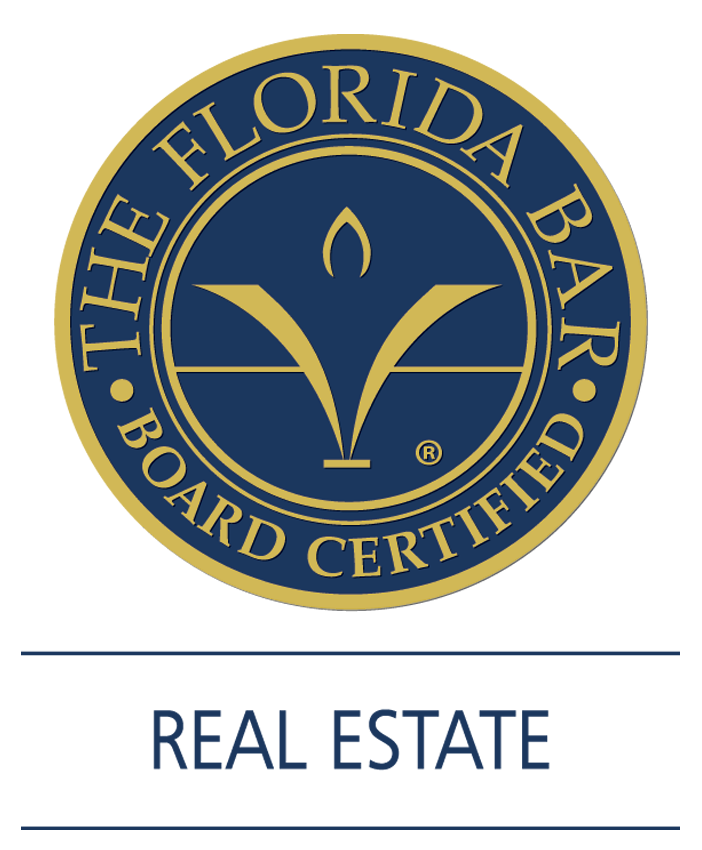How Does a Loan Modification Work?
Most people want financial stability, but unforeseen circumstances can throw a wrench into even the best-laid plans. When life's uncertainties decrease your ability to meet mortgage payments, a loan modification can provide relief.
A Board Certified Real Estate Lawyer in Vero Beach can help you understand what a loan modification is. How does it differ from other debt-relief options, and what are the implications for your long-term financial health?
What is a Loan Modification?

At its core, a loan modification is an alteration to the terms of a mortgage loan. The lender and borrower mutually agree upon this change to create more manageable payment conditions. The primary goal is to prevent default, aiding borrowers in retaining ownership of their homes.
Typical modifications may involve reducing the interest rate, extending the loan term, or altering the type of mortgage.
Why Consider a Loan Modification?
The topic of considering a loan modification is an important one that many homeowners find relevant, especially when confronted with financial difficulties.
Here's why you might consider a loan modification:
Unpredictable Life Events
Life is often unpredictable, throwing curveballs that can severely impact your financial situation. Events like losing a job, suffering from a health issue, or experiencing a divorce can put enormous financial strain on you and your family.
For homeowners, these circumstances become even more complicated, given the substantial monthly mortgage payments that many are obligated to make. In such situations, a loan modification can serve as a financial cushion, providing the necessary adjustments to stay afloat if you might default on your loan.
Avoiding Foreclosure
No homeowner wants to face foreclosure, but it becomes possible when you fall behind on your mortgage payments. It's not only emotionally distressing but can have severe long-term financial impacts, such as a significantly lowered credit score and the inability to secure loans in the future.
A loan modification can prevent this outcome. By negotiating new terms that are more manageable given your financial predicament, you essentially buy yourself time and flexibility, reducing the likelihood of foreclosure.
Easing Monthly Obligations
Many people find themselves house poor, where much of their income goes directly toward mortgage payments, leaving little for other expenses or savings. In this setting, unexpected costs can wreak havoc on a fragile financial ecosystem.
Loan modifications can ease monthly obligations, allowing for a more balanced budget and the freedom to allocate funds toward other pressing needs.
Maintaining Ownership
For many, homeownership is a point of pride and a long-term investment. Losing a home where you have made memories and built your life can be heart-wrenching. Loan modifications offer a way to keep property ownership under different terms, ensuring that you don't have to give up your home and can continue to invest in it for the future.
Mitigating Stress and Emotional Toll
Financial issues often affect mental health and overall well-being. The constant worry about how to make ends meet, especially regarding a fundamental need like housing, can be debilitating.
Loan modifications can alleviate some of this emotional toll by providing a clear pathway to financial stability, even temporarily. This psychological relief can be a huge factor in your overall quality of life.
Flexibility for Future Financial Planning
Securing a loan modification can also allow you to revisit and readjust your financial planning. While you'll still need to adhere to the new terms, the more manageable payment scheme offers breathing room to strategize for your financial future.
This can mean focusing on debt reduction, building an emergency fund, or even planning for investments.
Renewed Relationship with Lenders
Successful loan modifications can lead to a renewed, healthier relationship with your lender. Though lenders are not obligated to agree to a modification, their willingness to negotiate indicates a level of trust and a belief that you intend to meet your revised obligations.
This good faith can be advantageous in future interactions with the lender, be it for refinancing options or other financial products.
Types of Loan Modifications

There are a few different types of loan modifications. The first is an interest rate reduction.
In this type of loan modification, the lender agrees to lower the interest rate for a specific period or for the remaining term of the loan. A reduced interest rate can result in lower monthly payments, making it easier for the borrower to manage their financial obligations.
Term Extension
Another form of loan modification involves extending the term of the loan. Spreading the remaining balance over a more extended period reduces the monthly payments, although it may lead to paying more interest over the life of the loan.
Principal Forbearance
Here, a portion of the principal balance gets set aside, and the borrower is temporarily relieved from making payments on that portion. This action reduces monthly payments but does not forgive the debt; the borrower will eventually need to repay it.
Capitalization of Arrears
In this scenario, missed payments and fees are added to the principal balance, and a new payment schedule is established based on this higher balance. This approach helps borrowers catch up on missed payments without making a large, immediate payment.
The Process of Loan Modification

When you struggle to meet your monthly obligations, one avenue of relief is a loan modification, which can make your payments more manageable and potentially save you from foreclosure. The process for securing a loan modification is structured and requires attention to detail.
Evaluation: The First Step
Before approaching your lender for a loan modification, the first step is thoroughly evaluating your financial standing. You must have a clear picture of your income, expenses, debts, and assets.
Lenders generally look for tangible evidence that you are experiencing a genuine financial hardship preventing you from meeting your mortgage payments.
To substantiate your claims, you'll be required to submit a range of documents. This can include bank statements that show reduced income or increased expenses, pay stubs that prove you are earning less than before, or medical bills that have burdened you with additional costs.
Some lenders may also request a hardship letter, a written statement explaining the circumstances that led to your financial difficulty. A lawyer can write an honest and thorough letter that can play a significant role in the lender's decision.
At this stage, some people also consult financial advisors to examine the feasibility and long-term implications of a loan modification. While not mandatory, professional guidance can provide valuable insights into whether a modification is the most suitable solution for your circumstances.
Application and Negotiation
After completing your financial evaluation and gathering all the required documents, the next step is to formally apply for a loan modification. The application stage marks the beginning of a dialogue between you and your lender, designed to find a middle ground that serves both parties.
The loan modification application usually consists of several forms that need to be complete with great attention to detail. You'll also attach all the documentation gathered during the evaluation phase. Ensure that all information is accurate and up-to-date, as inconsistencies can delay the process or even result in a denial.
Once you apply, the lender will commence an in-depth review of your case. This process can take time.
After the assessment, negotiations begin. This phase involves back-and-forth discussions where both parties aim to reach an agreement on the new loan terms. Remember, lenders may negotiate because a loan modification is generally less costly for them than a foreclosure.
Trial Period
After arriving at preliminary terms that both parties find acceptable, most lenders will propose a trial period. This is a short-term arrangement, often lasting three months, designed to evaluate your ability to meet the new payment terms.
During the trial period, you will make payments based on the newly agreed-upon terms. Failure to make these payments on time can jeopardize the entire modification agreement. This is your opportunity to demonstrate that the modified terms are sustainable.
Throughout the trial period, maintain open communication channels with your lender. Regularly check in, provide updates, and promptly submit any additional required documentation. This proactive approach shows your commitment and can smoothen the transition to permanent modification.
Finalization: Sealing the Deal
Upon successful completion of the trial period, the next step is to formalize the loan modification. Both parties will sign the necessary documents to make the new loan terms official, essentially modifying the original loan agreement.
Detailed contracts outlining the new terms of the loan will be drawn up. Once these are reviewed and signed by both parties, the loan modification becomes legally binding.
From this point forward, you will have to make payments based on the new terms until the loan gets fully paid off or you make further changes. Any future hardships will require new negotiations, as you generally cannot alter the finalized modification.
Some lenders may include clauses that allow for regular reviews of your financial situation. These reviews can potentially lead to further adjustments in your loan terms if your financial circumstances change dramatically.
Risks and Considerations

While loan modifications can serve as a lifeline for homeowners facing financial hardships, they are not without risks and considerations. A loan modification is a significant financial decision with long-term implications, and it's important to weigh the pros and cons carefully.
Understanding the potential risks involved can help you make a more informed choice and prepare you for any repercussions that may follow.
Impact on Credit Score
The status of your credit score is a concern when considering a loan modification. A modification can have an impact on your credit, but the extent of this impact varies.
It may damage your credit score less than a foreclosure or bankruptcy, but this largely depends on how your lender chooses to report the modification to credit bureaus.
Different lenders have different reporting practices, which can result in different outcomes for your credit score. Some may report it as deferred payment, partial payment, or loan modified, each of which carries its weight in credit score calculations. Have a candid discussion with your lender about how they intend to report the modification.
A dip in your credit score, even if minimal, can affect your ability to secure other types of financing in the future. This can range from auto loans to new credit cards or even another mortgage. Therefore, it's important to consider the broader impact on your financial footprint.
Extended Repayment
One of the more appealing aspects of a loan modification is the potential for reduced monthly payments, often achieved by extending the loan term. While this provides immediate relief, you'll be shouldering this debt longer.
Over time, a longer loan term often translates to more interest paid over the life of the loan. While your monthly payment may be more manageable, you can pay significantly more in total interest. Calculate this long-term cost when considering a loan modification.
Being tied to a loan for an extended period may also impact your ability to invest in other opportunities. Funds you might have used for other investment ventures will instead go to your prolonged mortgage payment plan.
Legal Implications
Your original mortgage contract likely has clauses that outline what can and cannot be modified. Deviating from these stipulations can result in legal consequences. Ensure you are fully aware of these terms before proceeding with a loan modification.
Different states have different laws regarding loan modifications, including what you might modify, how lenders report it, and what rights borrowers and lenders have during the process. You can greatly benefit from seeking legal counsel to proceed with a loan modification.
You must have documentation of all terms, adjustments, and conditions of the modification. Any omission or ambiguity can result in legal challenges down the line. Always ensure that you fully understand the legal implications of what you're signing.

Speak with a Real Estate Lawyer About a Possible Loan Modification
Loan modifications can be an option for those facing financial hardships, but it's best to weigh the pros and cons carefully.
While they provide immediate relief by lowering monthly payments or interest rates, they also have long-term financial and legal implications. Therefore, consult financial advisors and knowledgeable lawyers to understand your specific situation fully before opting for a loan modification.
